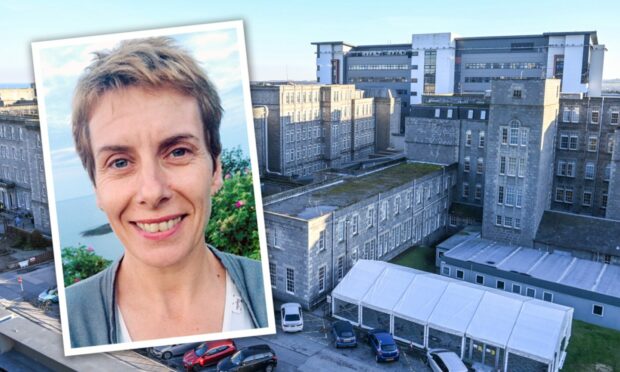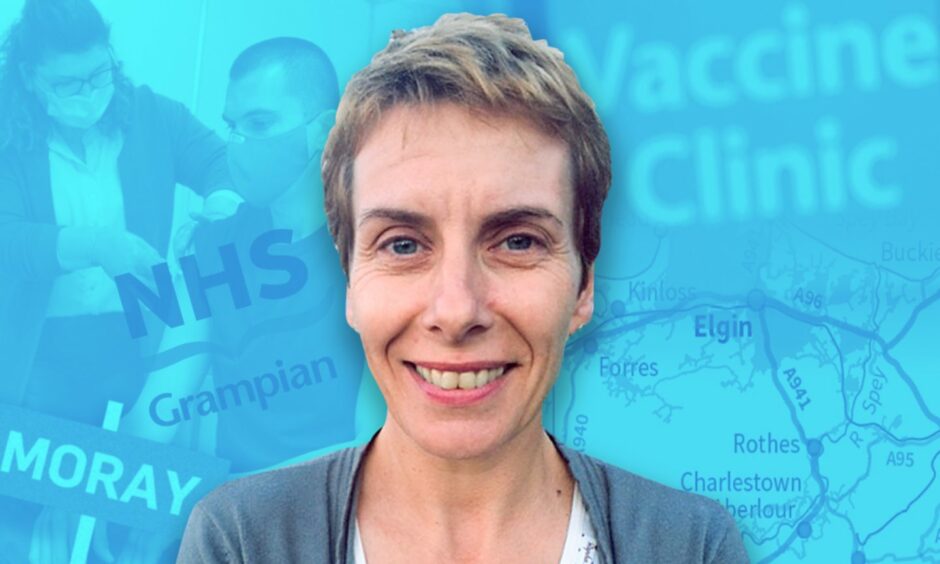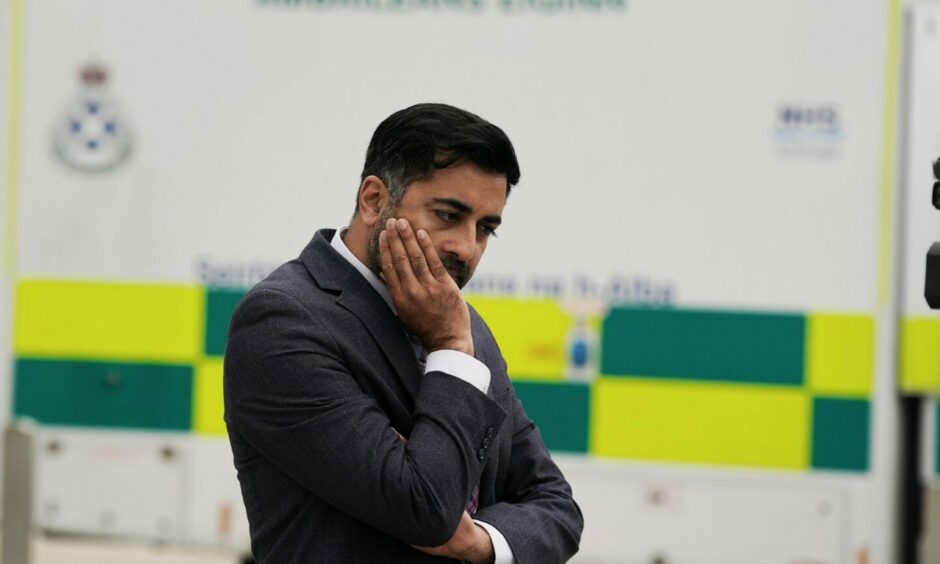NHS Grampian’s health expert has said more beds in the care system would not mean more people could receive hospital care.
Jillian Evans, the health board’s health intelligence, said the NHS was facing an “unprecedented” demand on services, one that was having an impact on care.
She called for an understanding from government, and its expectations of what can be done over winter – as the service faces a severe shortage in capacity.
In the past month NHS Grampian said it was facing “extreme pressure”.
Ms Evans said that she wanted the government to focus on long-term investment in staffing, and to offer “space and time” to deal with the current crisis .
Speaking to BBC Radio Scotland’s Sunday Show, Ms Evans said if she could ask for one thing from government she would ask for time “like we did with Covid”.
While she did not go as far as expressly saying elective surgeries should be postponed – she talked of the demand on the service, and the expectations of patients coming into the system
She said: “We know that the waiting times in A&E are a symptom of what’s happening right across the healthcare system. There are issues with waiting in emergency departments.
“Some of that is due to severity of illness that patients are presenting with: Lots more life-threatening conditions now, patients turning up with heart, chest and stroke problems, older people too.
“But the waiting time in A&E is a symptom of what is happening right across the health system.
She continued: “Some of it is about the flow going through hospital, how quickly you can move through the stages from admission to discharge, and what is happening in the community.
A system that is bunged up
“It is a sign of the system being very bunged up, it is an increase in demand and how we use our capacity and how many beds we have in the system.”
She said: “If I was to say we need more beds in hospitals to cope with increases in demand, you need to staff those beds, you can’t just open the bed and expect staff to continue at the same level of care.
“Patient outcomes would be affected if you do that, so we cannot do that lightly
“Staffing is crucial, not just in hospital, it is in social care too. We know there is such an increase, the highest level we have seen for many years, of patients clinically fit to be discharged but can’t because of the shortage of social care staff in community or in care homes.”
How do you get more staff?
Speaking of staffing, she said: “What we often have is investment in our health services can sometimes be a little sporadic, sometimes it comes – sometimes it stops. What really would be great would be a long-term plan for our workforce and sustainable investment to make that happen.
“And with that confidence and certainty it would be a much more stable basis for staff to come and work in the NHS.”
Asked what she would want from the government if she could have one thing, she said: “Well I think for winter, right now, it would be give us the time to focus and concentrate on the job we have got in hand over the next six months, and give us the space and freedom to do that.
“The other would be look at long term plans for workforce and investment.”
She explained: “We are trying to cope with a very big backlog in people who are waiting for operations and scheduled treatments. So, we are trying to do that alongside unprecedented pressures on our emergency services, so I think we need to look for a better balance like we did with Covid.”
Working on the delayed discharge
She added: “Like Covid plan for the worst and hope for the best.”
Health secretary Humza Yousaf said the NHS was not performing at the levels it should be.
He said: “One of the biggest problems is a high level of delayed discharge, because local authorities are unable to provide social care packers.
Saying staffing levels were critical, he said: “Vacancies are far too high. There has been so much focus from us on retention.
He said the government was directing its attention to moving even a fraction of the delayed discharges out the system, to free up capacity.
He added: “This is shaping up to be one of the most difficult weeks the health service ever had to face.
“My health budget is worth £650m less than it was in December. We need the UK government to undo the damage it has done.”



Conversation